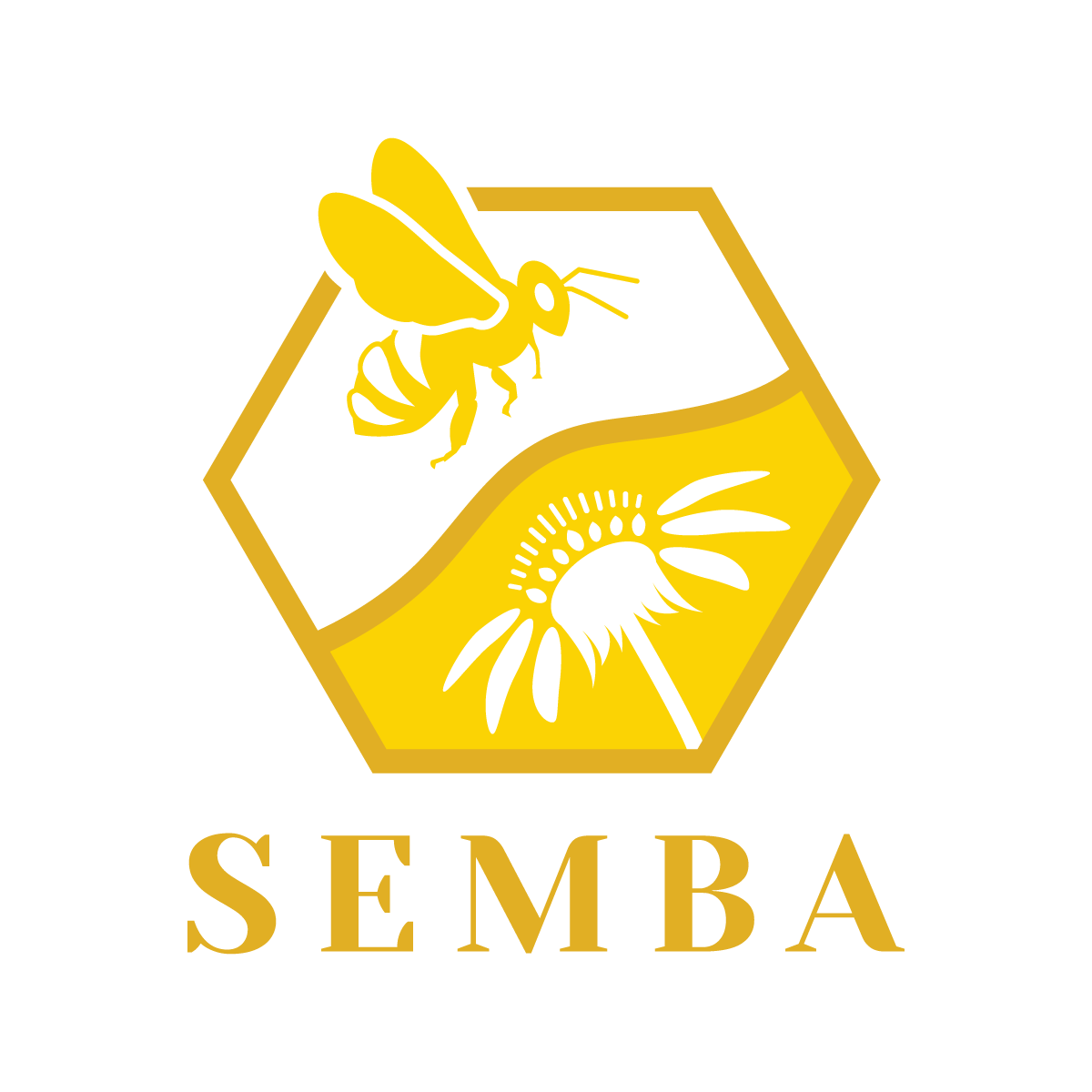The History of SEMBA
April 1, 2018 will mark the 84th anniversary of Southeastern Michigan Beekeepers' Association (SEMBA). However, the organization did not adopt the name SEMBA until 1965 when the Wayne County Beekeeping Association (WCBA), Oakland County Beekeeping Club and the Macomb County Beekeeping Club merged to become one association. We recognize the beginning of SEMBA as April 1, 1934 because on that date a small group of Wayne County beekeepers held their first meeting in Henry Reinhold's honey house in Flatrock, MI. Dues for this new club were set at 25 cents. Emerick Kocsis was elected president and he was also the first life member.
Sometime between 1934 and 1965 several other beekeeping clubs were beginning in Southeastern Michigan. According to research done by two former presidents of SEMBA, Richard Miller and the late Homer Pugh, the Oakland County Beekeepers' Club started in 1946 with Henry Saeger as the president. Later presidents of the Oakland County Beekeepers' Club include Alex Brown, Alex Bzenko and David Barber. No information was found regarding the Macomb County Beekeepers' Club other than statements by Alex Bzenko and David Barber, current SEMBA Life Members, who say that Macomb was a very small club. Another Southeastern Michigan bee club serving Washtenaw County was the Ann Arbor Bee Club begun in 1965 by Diana Sammataro, a University of Michigan graduate student. When that club disbanded, many of those members joined SEMBA.
All of these early bee clubs were organized to promote beekeeping education to the general public at the state and local level, to share beekeeping ideas and to provide help to fellow beekeepers with a variety of beekeeping problems. Toward that end, the first annual bee school was presented by WCBA in 1938. It is unclear where the first bee school took place, but over the years it has been held in many different locations: vacant stores, Detroit Mackinzie High School, Dearborn Fordson High School, Dearborn City Hall Council Chambers, 4-H Fair Grounds in Belleville, and Cranbrook Institute. In 1977, Schoolcraft College became the site for bee school and in 2004 Schoolcraft will host this event for the 28th time.
The 1935 WCBA minutes written by the secretary-treasurer, Walter Becker, reveal that the organization petitioned the State of Michigan to begin inspections of colonies to control American Foul Brood disease. The first Michigan State Apiary law was enacted at that time; SEMBA and other Michigan Beekeepers were prime movers in promoting that law. Walter Becker who served as secretary-treasurer of WCBC from 1935 until 1968 wrote as follows: "The Wayne County Beekeepers' Association appropriated money for years to help pay for 100% inspection. One year $1,000 was expended. In 1935 there were 382 beekeepers in Wayne County and over 2000 hives in the city of Detroit."
On another WCBA beekeeping project, Walter Becker recalled: "On August 11, our 8th meeting was held in Cecil Blakley's hot basement. A hat was passed to help pay the expenses of our first Michigan State Fair beekeeping booth. $13.65 was collected." The state inspection and registration program is now history but the annual bee school and the Michigan State Fair beekeeping booth are still highly successful endeavors.
The January 19th, 1936 WCBA minutes reveal that Russ Kelty, of the Michigan Ag College (now MSU), announced that hundreds of colonies were being brought into the state and many more would follow because of the good honey locations here and freedom from American Foul Brood. Members were buying packages from the Association and buying packages in large lots was making a few dollars for the treasury.
Since 1934 beekeepers in Southeastern Michigan have maintained a fine mutual relationship with MSU Extension Service and the Entomology Department. Russell Kelty who headed-up the MSU agriculture program from 1929 until 1949, provided a great deal of assistance to the newly formed WCBA. Dr. E.C. (Bert) Martin who began his tenure as apicultural specialist at MSU in 1950, continued to assist beekeepers in all aspects of beekeeping through 1975. Dr. Roger Hoopingarner, whose introduction to beekeeping began as a youth in Detroit, became the apicultural specialist in 1976. He retired in 1997 but continues to give valuable advice through his lectures and journal articles. Dr. Zachary Huang who became the agricultural specialist in November 1998, continues the fine tradition of apicultural research and teaching at MSU.
Helping fellow beekeepers in time of need has been an important objective of the organization. Over the years SEMBA has successfully aided several beekeepers with legal disputes. Perhaps the most publicized trial was McGregor versus Redford Township. The case began in 1971 when Hector McGregor was convicted of creating a nuisance by keeping bees in his back yard in violation of the Township Ordinance. Five years later, the Michigan Court of Appeals overturned the conviction and ruled that the keeping of bees does not constitute a nuisance. This landmark ruling set a legal precedence for the State of Michigan with respect to beekeeping.
In 1990, the SEMBA constitution was revised to include the Cranbrook Bee Club and Schoolcraft Bee Club as affiliate chapters of SEMBA. In 2004 Seven Ponds Bee Club became an affiliate chapter. Cranbrook Bee Club was founded by Robert Byberg with assistance from Norton Williams in 1975/76. Cranbrook Bee Club members voted in 2001 to change their name to Oakland Bee Club. Schoolcraft Bee Club was started in about 1977 by Schoolcraft College faculty member Roger Sutherland. Seven Ponds was organized in 2004 by Nancy Schliebe.
The following list of Presidents of Wayne County Beekeepers' Association and SEMBA: |
|
SEMBA Email: sembabees.info@gmail.com |
